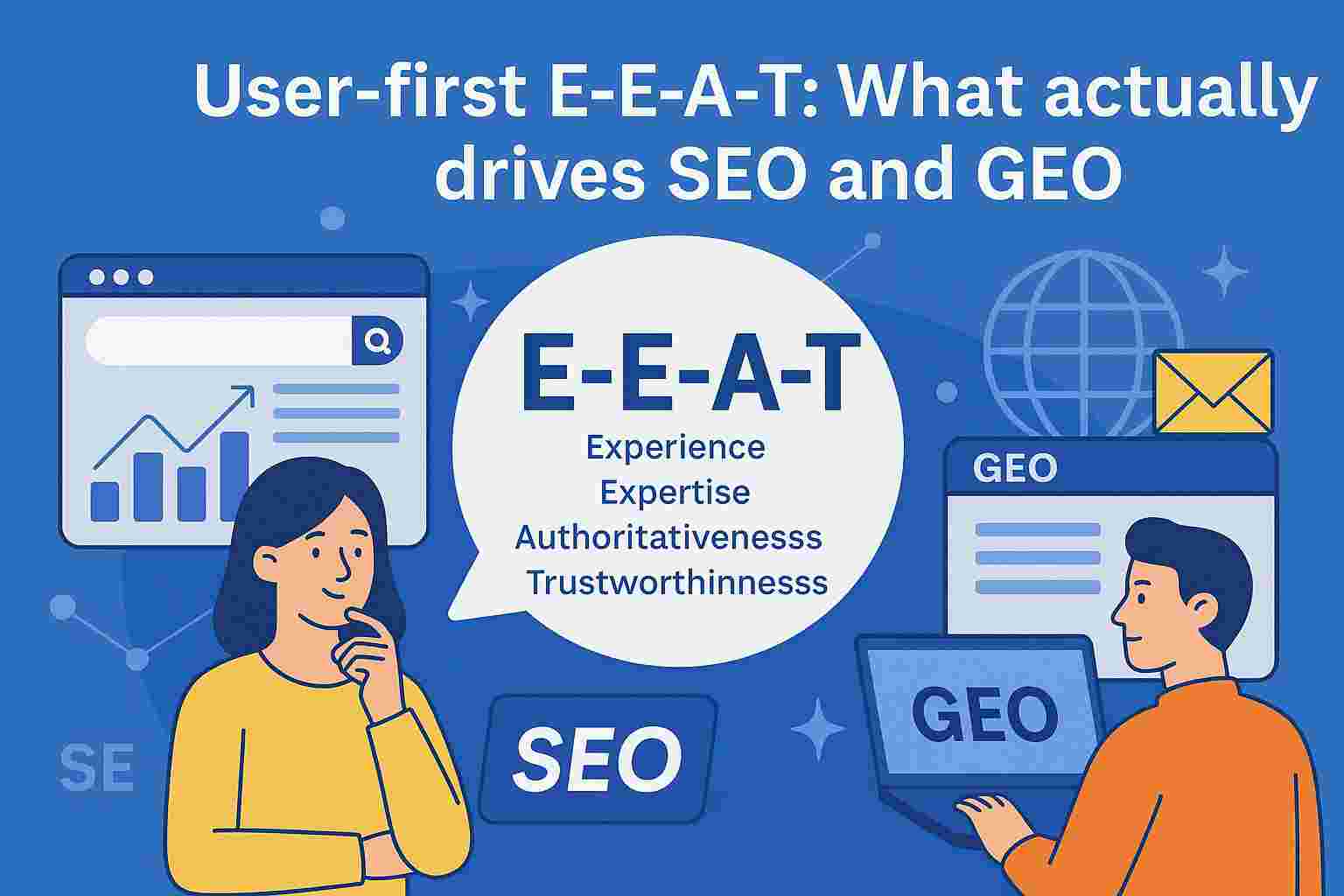Introduction
Ever wondered why some content just feels trustworthy, and gets featured in AI summaries as well as Google results? That’s the magic of user‑first E‑E‑A‑T, and it’s what modern content creators need to focus on especially now that Generative Engine Optimization (GEO) is rising alongside traditional SEO.
What is user‑first E‑E‑A‑T and why does it matter?
User‑first E‑E‑A‑T stands for Experience, Expertise, Authoritativeness and Trustworthiness but importantly it’s about real human trust, not checkbox metrics. Google doesn’t give you an E‑E‑A‑T score it’s a content quality framework used by real humans via quality rater guidelines. When audiences trust your content, they share it, link to it, and that’s what boosts performance in both SEO and AI‑driven systems like chatbots. You can read more about the principles in this Answer Engine Optimization guide for 2025.
SEO vs. GEO. And what connects them?
Traditional SEO is concerned with getting a website ranked and seen on the search engine result pages by tweaking keywords, backlinks, and on-page signals. GEO-or Generative Engine Optimization is about getting your content cited or featured outright in AI-generated summaries or answer engine optimization results-lessons from ChatGPT or Google’s AI overview features.
What drives success in both traditional SEO and GEO?
It’s always been about trust and quality and that’s what E‑E‑A‑T embodies:
Experience: Real-world stories, firsthand case studies, user‑generated content
Expertise: Credentials, author bios, authoritative insights
Authoritativeness: Backlinks, press mentions, industry recognition
Trustworthiness: Transparent content, accurate data, secure site infrastructure
These components power human‑first content, which both search engines and AI favour. You can learn more in our Advanced SEO Strategies for 2025.
How can businesses optimize with GEO and E-E-A-T working together?
Start with strong SEO fundamentals: keyword research, structured headings, schema markup and rich snippet support. Then layer in GEO‑focused tactics like conversational FAQs and entity optimization so AI engines cite you appropriately.
Expert voice helps: “If you’re not writing for a human being… stop what you’re doing now,” as Chris Steele puts it. And a local example from Seoteric shows how geographic targeting can reinforce both E‑E‑A‑T and local search presence effortlessly. This is where Local SEO and Google Business Profile Optimization can make a real difference.
Expert perspective
As content strategist Nina Lopez says, AI won’t replace writers, but writers who use AI might replace those who don’t. That emphasis on human-first content still rings true AI just needs the signal to cite you. Search engines and generative models alike lean on content people trust.
Conclusion
User‑first E‑E‑A‑T is not just a headline it’s the heartbeat of modern visibility. SEO gets users to your site, GEO gets AI to reference you in answers. Build content grounded in trust, expertise, and real experience and you’ll win across both landscapes.
Drop a comment and let me know if you’d like help optimizing your site for GEO or SEO or both.
FAQs
SEO helps your site rank in traditional search results, GEO helps your content get cited by AI assistants in their answers sometimes even without a click.
Not a direct one Google doesn’t score it but content that shows real experience, expertise, trust and authority tends to rank better over time.
Yes especially for answer engine optimization and generative engine visibility. It helps AI understand and cite your content.
Regularly. Content freshness and accuracy boost trustworthiness, especially for sensitive or “Your Money Your Life” topics.
Absolutely. Local case studies, community mentions, and geo-targeted pages help with both traditional local SEO and being featured in AI overviews.
